7 Refrigerator Brands To Avoid And 5 Most Reliable Brands
When it comes to appliances, refrigerators are often the unsung heroes of the kitchen. They keep our food fresh and provide ample storage space for our groceries. With so many options available in the market, it’s essential to find a reliable brand that delivers long-lasting performance. However, not all refrigerator brands are created equal. Some may excel in other appliances but fall short when it comes to refrigerators.
To help you make an informed decision, this post will highlight the top 7 worst refrigerator brands to avoid, as well as provide insights on how to identify a bad brand and what to look for when buying a new one. This comprehensive guide aims to equip you with the knowledge necessary to find the perfect refrigerator that meets your needs and budget.
How to identify a bad refrigerator brand
When it comes to refrigerators, subtle red flags can often go unnoticed due to brand loyalty and other factors. However, being a savvy buyer requires recognizing the warning signs of a poor refrigerator brand. Here are some key indicators to watch out for: A bad refrigerator brand is often characterized by low quality construction and the use of cheap materials.
Some telltale signs include: Doors that are misaligned or don’t fit together properly, leading to issues with sealing and temperature control. Frequent malfunctions and breakdowns, which can be frustrating and costly. Unreasonably short warranties that leave you vulnerable to costly repairs. Leaks and moisture issues that can damage your kitchen and belongings. High prices for replacement parts and accessories that can further strain your budget.
Poor customer service that leaves you feeling ignored or dismissed.
7 worst refrigerator brands to avoid
When evaluating the top-performing refrigerator brands, we drew upon a combination of market data and firsthand accounts from satisfied customers to compile this list of brands that fell short of expectations. With transparency in mind, we’re about to reveal the refrigerator brands you should steer clear of.
Kitchen Aid
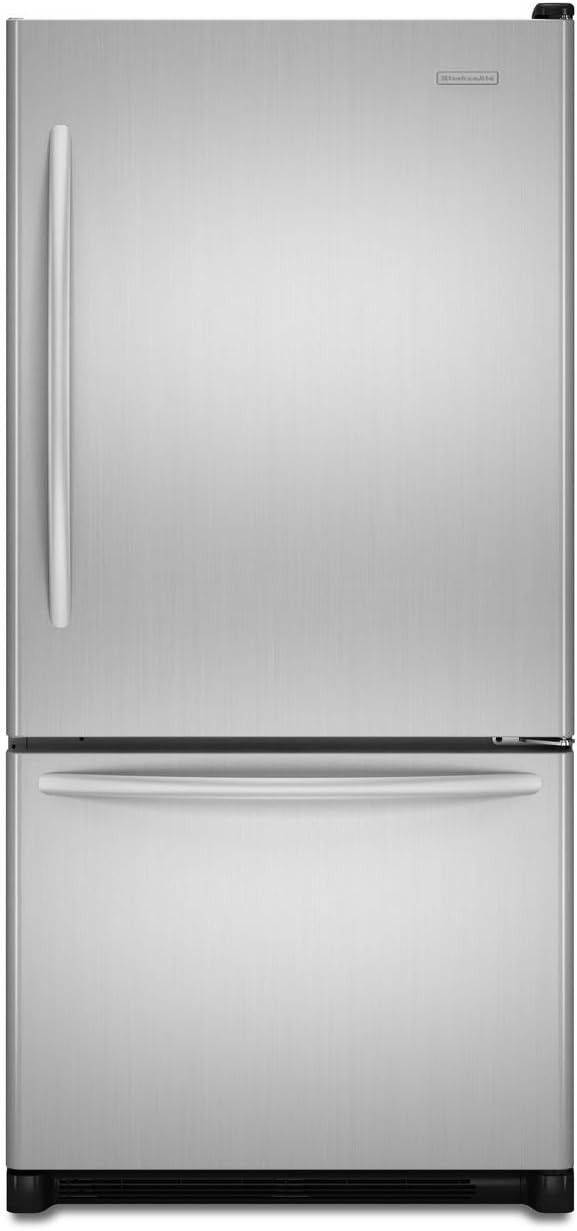
KitchenAid, once touted as a top-tier refrigerator brand, has seen its reputation take a hit due to performance issues in some of their counter-depth models. While they were once considered among the most durable options on the market, recent problems have led many consumers to reevaluate their loyalty. One major concern is the prevalence of misaligned doors and design flaws that can impact cooling performance and ice production.
Additionally, users have reported water leakage and serious issues with the interior water dispenser. Perhaps most disturbingly, some owners have reported abnormal noises emanating from their fridges after just six months, as well as rusting issues within a year of purchase.
Beko
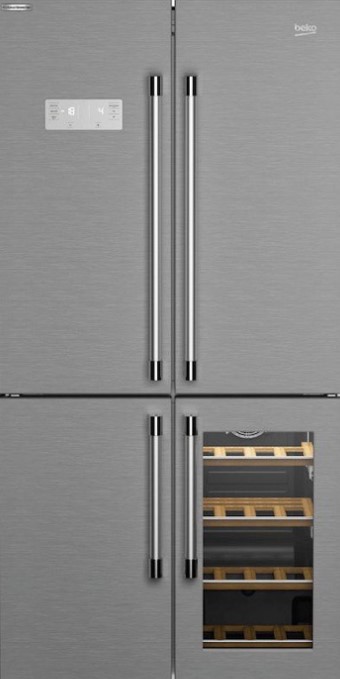
While this brand is renowned for offering a great design at an affordable price point, there’s one major caveat: its products’ longevity has consistently been a concern. The most notable issue with their refrigerators is temperature fluctuations, which can have a significant impact on your electricity bill.
Additionally, customers have expressed concerns about the build quality of these appliances, as well as issues with durability, strange sounds emanating from the icemaker and poor customer service.
Bosch
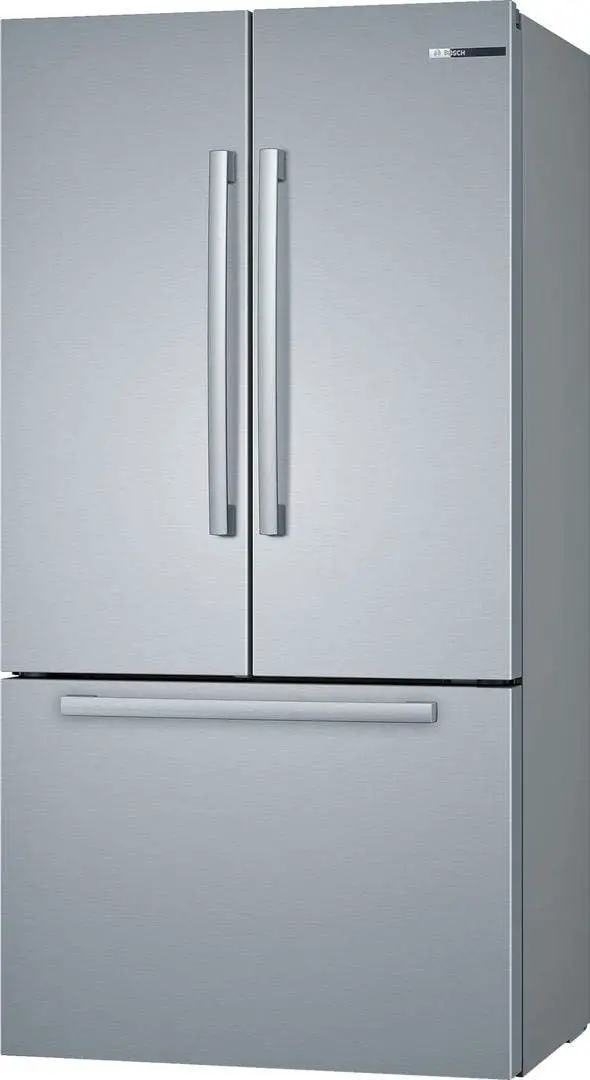
Bosch, a renowned appliance brand, has earned its spot on this list for several compelling reasons. One notable issue with their refrigerators is the prevalence of water leakage problems, often occurring within less than a year of use. Additionally, customers have expressed disappointment with the poor performance of icemakers in these appliances. Furthermore, users have noted that maintaining humidity levels in the crisper drawers can be challenging due to design limitations.
Moreover, the interior layout has been criticized for its narrowness, which can make it difficult to organize and store items efficiently. Lastly, some customers have pointed out what they perceive as ‘cheap manufacturing’ of the appliance parts, citing instances where damage occurred easily.
Vikings
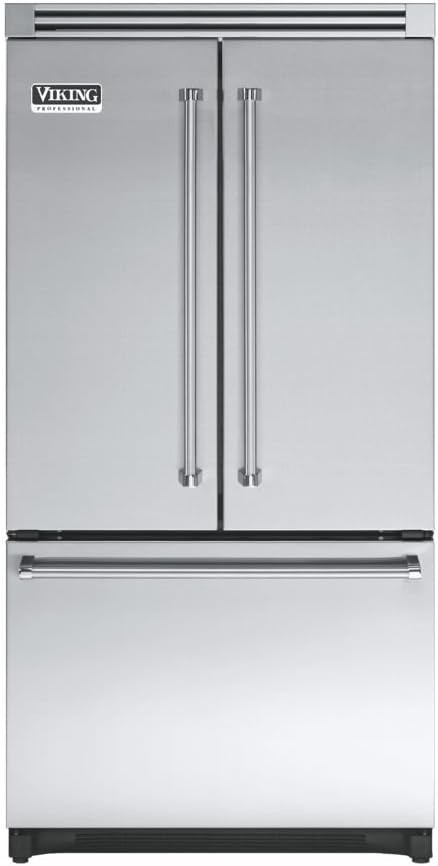
While some appliance brands can still produce faulty products, even well-established names like this one are not immune to mistakes. Websites such as Amazon and Best Buy have both rated this brand poorly, citing issues with water leaks, ice falling from the icemaker, and subpar interior construction. The majority of complaints center around the high cost of these refrigerators – not just at purchase, but also in terms of premature repairs that are often needed.
Furthermore, negative feedback is also common regarding the brand’s customer service.
SMEG
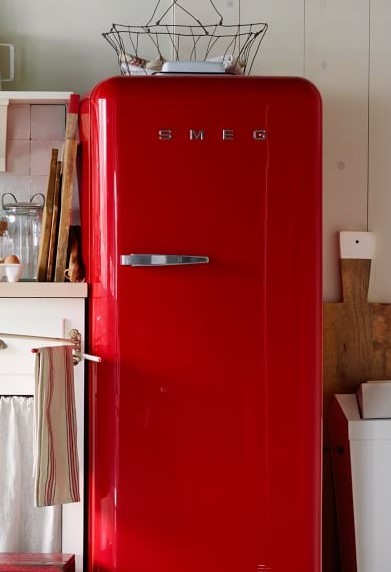
While SMEG’s refrigerators may seem appealing at first glance, they fall short in several key areas. Specifically, the brand’s customer satisfaction ratings are underwhelming, with a mere 20% approval rate from customers between 2017 and 2020. Furthermore, lab tests have revealed subpar temperature control performance, which is a major concern for anyone looking for reliable refrigeration. To make matters worse, SMEG’s high-end appliances come at a steep price point ($4000!
), making them even less justifiable given the brand’s lackluster customer service, which has been rated as ‘poor’.
5 most reliable refrigerator brands
When exploring the world of refrigerators, it’s essential to consider a variety of options from reputable manufacturers. To cater to different tastes and preferences, here are some prominent refrigerator brands that have garnered attention for their market performance, customer ratings, and popular reviews on leading review platforms.
Café
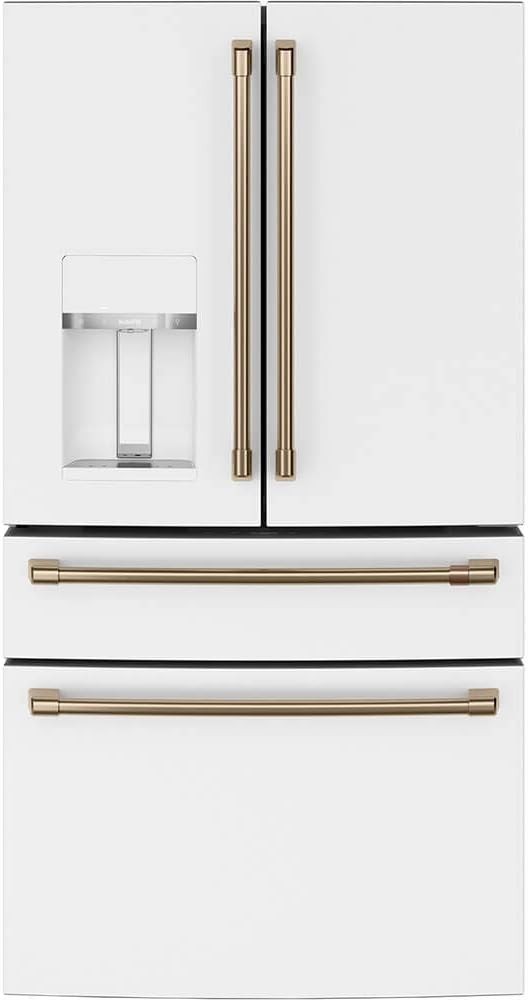
While not as widely recognized as some other brands, this manufacturer is making significant inroads in the refrigerator market. Their high-end products come with a hefty price tag, but for those seeking exceptional durability and unconventional designs, they deliver. A unique selling point is the ability to customize the interior layout of your refrigerator prior to purchase, allowing you to tailor it to your specific needs.
Furthermore, their refrigerators can be customized on the exterior as well, offering unparalleled flexibility. Additionally, all of their units now feature smart technology integration, ensuring seamless connectivity and control. Perhaps most impressively, however, is the inclusion of a separate evaporator, which helps extend the shelf life of perishable foods.
Magic Chef
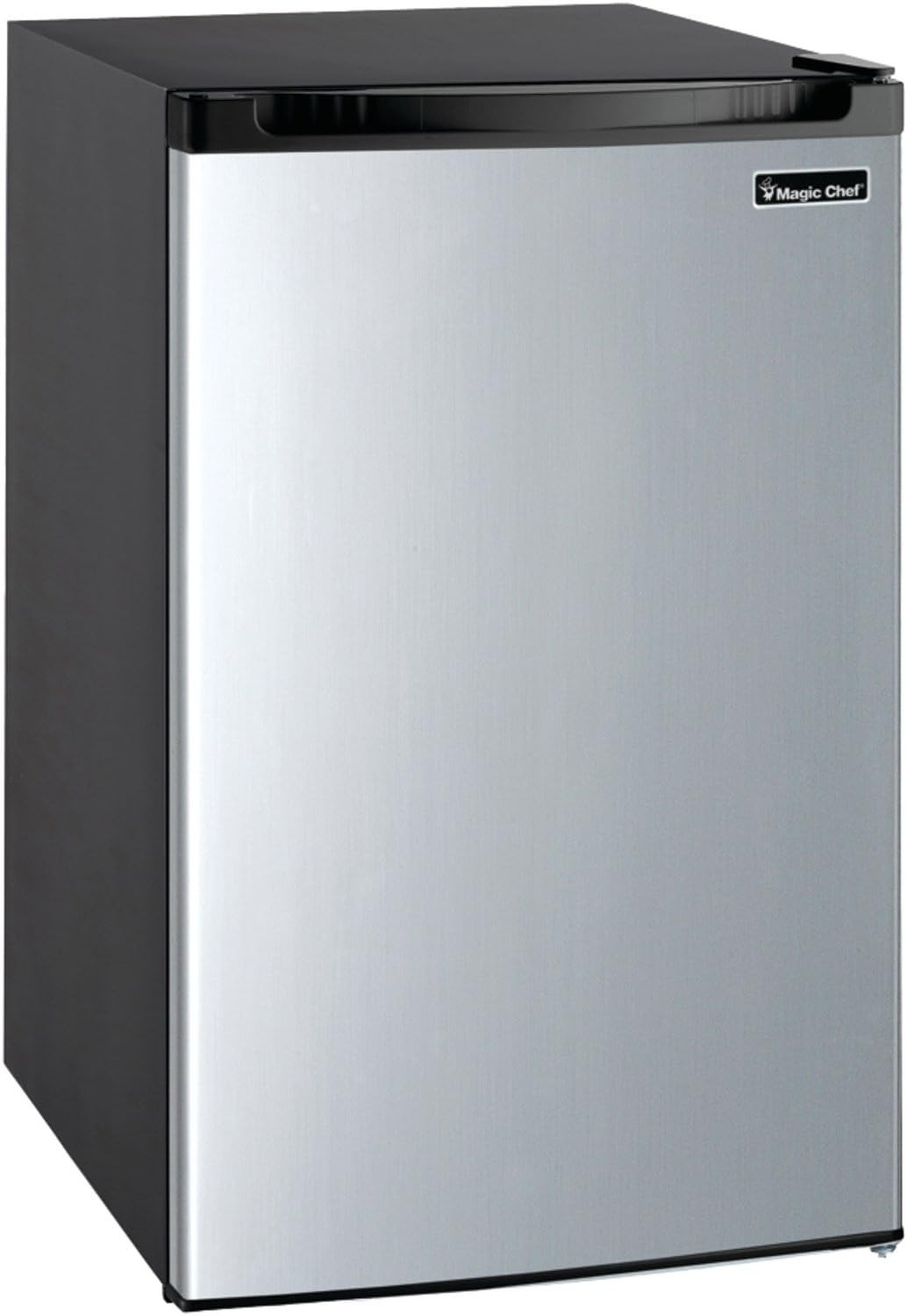
When seeking reliable and space-efficient refrigerators, Magic Chef is an excellent choice. The brand’s core strength lies in its practical functionality.
Despite their compact dimensions, Magic Chef’s refrigerators boast a cleverly designed interior layout that maximizes storage capacity. With shelves capable of holding ample contents, these units seamlessly integrate into even the most compact living spaces.
Additionally, the understated aesthetic ensures a harmonious fit with any home décor. Furthermore, Magic Chef’s commitment to durability has earned it a reputation for delivering high-quality products that live up to their online store reviews.
Mistakes to avoid when buying a new refrigerator
While refrigerators are typically long-term investments, even the most meticulous consumers can fall prey to common pitfalls that lead to costly repairs or underwhelming performance. To ensure a smooth and satisfying experience with your new appliance, it’s crucial to steer clear of these frequent blunders.
#1. Being under-researched
When considering the purchase of a new refrigerator, it’s essential to conduct thorough research on various brands. While this process may seem arduous, the payoff is well worth the effort. By doing so, you’ll be able to make an informed decision that ultimately saves you time and money in the long run. To begin, create a list of desired features for your ideal refrigerator. Then, meticulously compare each brand option against these requirements, allowing you to pinpoint the perfect fit.
#2. Getting the wrong size
When selecting a refrigerator, it’s easy to overlook crucial factors that can make or break the installation process. One common mistake is failing to consider the specific dimensions of the intended space, including the doorway, surrounding areas, and ceiling height. To avoid this, take the time to meticulously measure the area where the fridge will reside.
This includes accounting for the entrance and clearance when opening the door, as well as ensuring the appliance fits comfortably beneath the ceiling. By doing so, you’ll be better equipped to choose a ref that seamlessly integrates into your home layout.
#3. Not considering energy efficiency
While it’s tempting to be swept away by a refrigerator’s sleek design and advanced features, it’s crucial not to overlook the impact they can have on your electricity bills. Failing to prioritize energy efficiency in your appliance choice can lead to a costly regret.
#4. Not knowing your own home’s water lines
For individuals weighing the purchase of a premium refrigerator featuring an interior water dispenser, this oversight is particularly egregious. Failing to grasp the necessity of connecting the device or being unaware that dedicated water lines are required can significantly hinder the overall luxury experience associated with these high-end appliances.
#5. Getting the wrong style
When selecting a refrigerator, the shape, size, and design can be crucial factors to consider. Each type of fridge has its unique advantages and disadvantages, making it essential to determine which layout is best suited for your specific space. You’ll need to decide whether counter-depth models, French door designs, top/bottom configurations, or column freezers will better suit your needs.
#6. Not considering capacity, storage, and finishing
When it comes to refrigerators, capacity, storage, and finishing aren’t just arbitrary choices. Instead, they should be carefully considered based on the unique needs of your household. This includes factors like family size, demographics, and your most frequently purchased items. For instance, fingerprint-resistant models with top-and-bottom freezer configurations can be a great fit for families with young children or toddlers, as they’re designed to withstand messy hands and easy cleaning.
On the other hand, column-style freezers are often ideal for smaller households or apartments, where space is at a premium.
What should I look for when buying a refrigerator?
When selecting a refrigerator, it’s essential to be as deliberate as you would be when purchasing a treasured item. There are key factors to consider that can make all the difference in finding the perfect fit for your needs. To streamline the process, here are some critical guidelines to follow:
Pick the right style
Refrigerators come in a variety of styles, each with its unique benefits and drawbacks. Here’s a concise overview of the most common types.
Top freezer models feature a spacious freezer on top, accompanied by organized drawers and shelves inside. They’re ideal for compact spaces where every inch counts. Bottom freezer designs, on the other hand, work well in average-sized kitchens, providing easy access to frequently used items since the main storage area is at eye level.
French door models boast two narrow doors at the top and a bottom freezer compartment. They often come with an additional drawer for added convenience. This design excels in terms of space efficiency and energy conservation, as you only need to open one door occasionally and don’t have to constantly open and close the entire unit.
Side-by-side models offer narrow doors with drawers and a crisper on one side and a freezer on the other.
They frequently feature water dispensers and ice makers in the front. While space-saving, these units can be hindered by their narrow compartments, making it less easy to access stored items. Built-in refrigerators are premium products that seamlessly integrate into most cabinets and countertops. Although pricey, they offer unparalleled space efficiency and style.
Overall, each refrigerator type has its strengths and weaknesses, making it essential to consider your specific needs and preferences when choosing the right model for your kitchen.
Refrigerator size
When planning to install a refrigerator, it’s crucial to take precise measurements of the designated space to ensure a seamless fit. Not only do you need to consider the actual size of the fridge itself, but also make allowance for the door to swing open without obstruction. A minimum of one inch of clearance on all sides is vital for maintaining optimal airflow. With refrigerator sizes ranging from 10 to 36 cubic feet, it’s essential to choose a model that suits your needs.
For solo dwellers, a compact 10-cubic-foot fridge should suffice. Larger families may require models in the 18-24 cubic foot range, while households with multiple occupants may need to consider larger units measuring 26-36 cubic feet.
Features
When shopping for a refrigerator, it’s essential to consider the features that will impact its performance and your daily experience. You should prioritize features that offer convenience, better organization, and energy efficiency. Some notable features to look out for include: A through-the-door water and ice dispenser, which can be a major plus but may also lead to costly repairs and increased electricity bills.
Door-in-door storage is another ergonomic feature that allows you to store frequently used items in a designated compartment, making it easier to access them without opening the entire refrigerator. This design also promotes energy efficiency. To ensure freshness, look for features such as dual evaporators that maintain optimal humidity levels, interior air purifiers that inhibit mold spores, and vacuum-sealed drawers and crispers that keep food fresh for extended periods.
Temperature controls have come a long way from traditional single-control units. Sophisticated temperature control systems allow you to customize the temperature for each drawer, making it ideal for storing cold cuts and meats, as well as setting humidity levels for crispers and drawers. Finally, consider refrigerators with adjustable shelves and drawers that enable you to easily accommodate taller items, separate shelves for different types of food, and shelf snuggers for beverages and dips.
Lastly, smart technology can be a game-changer. Refrigerators with remote control capabilities ensure that your food remains in check, even when you’re not at home. Some models come equipped with built-in cameras to help you keep track of expiration dates, while others feature touchscreen panels connected to WiFi, allowing you to order groceries online.
Energy efficiency
The crowning jewel of any kitchen, refrigerators are always in operation, making it crucial to select one that won’t break the bank on your electricity bill. To make a smart purchase, look for models with an energy star rating of 6 or higher. Additionally, consider investing in an energy meter to get an accurate gauge of how much each appliance contributes to your overall energy consumption.
Brand warranty
When shopping for a new refrigerator, it’s common to be faced with the limitation of standard warranties offered by most manufacturers. However, there is an advantage to be had when you stumble upon a model that comes equipped with an extended warranty period. This added perk can significantly broaden your options and provide greater peace of mind in the long run.
When to replace a refrigerator?
When it’s time to bid farewell to your refrigerator, consider the following key factors. Firstly, think about its age. If it has reached 15 years or more, it’s likely nearing the end of its lifespan, with the compressor possibly starting to fail. In fact, by the 8th year mark, you may have already experienced the need for repairs. As such, if the repair costs exceed the cost of a new unit, it might be time to let go.
Additionally, older refrigerators tend to lose their energy efficiency, which can result in higher electricity bills even when they’re not being repaired. On average, refrigerators over 10 years old consume twice as much electricity as newer models. Moreover, certain types of refrigerators are more prone to damage and repairs than others. For instance, side-by-side units may require continuous repair by the 5th year mark.
Furthermore, issues with features and functions should also be considered when deciding whether to replace your refrigerator. This includes, but is not limited to: door misalignment, frequent water leaks, cooling issues, icemaker malfunction, grounding and power issues, abnormal sounds, food spoiling at low temperatures, a hot backside, freezing temperature fluctuations, frost or condensation becoming more frequent, and too many premature repairs.
Ultimately, if your refrigerator is consistently breaking down and driving up your electricity bill, it might be time to consider upgrading to a newer model.
What brand of refrigerator has the least problems?
In terms of reliability and minimal issues over an extended period, the competition is fierce. Samsung, LG, GE, and surprisingly, Whirlpool, all prove to be formidable options when seeking durable French door refrigerators.
What brand of refrigerator lasts the longest?
When it comes to refrigerator brands that boast impressive longevity, Frigidaire, Maytag, and GE are neck-and-neck in terms of durability. Each of these stalwarts can be expected to last anywhere from 12 to 20 years without a significant decline in performance – an attractive feature that has earned them the loyalty of many customers.
Which brand is best for a side-by-side refrigerator?
While side-by-side refrigerators do offer ample storage space and impressive feature sets, they often require more upkeep compared to other types of appliances. However, if you’re looking for a reliable and reasonably priced option from GE, you won’t be disappointed. Their models typically boast spacious designs, well-organized shelving, and the integration of advanced features into the overall design is seamless.
With this brand, you can expect a high-quality refrigerator that will meet your needs without breaking the bank.
Is Midea refrigerator a good brand?
In recent times, Midea has solidified its position as a top-performing brand in the market, largely due to its exceptional build quality and unparalleled manufacturing standards. One of its most impressive features is its energy efficiency prowess, boasting an impressive high energy star rating that not only sets it apart from competitors but also ensures long-term sustainability, making it a reliable choice for consumers seeking a dependable refrigerator brand.
Is Maytag a good brand for refrigerators?
Maytag’s reputation as a top refrigerator brand is well-deserved, having been consistently ranked among the best for seven years running. Their appliances are specifically designed to meet the needs of larger households, boasting spacious interiors with sturdy doors that open wide and ample storage space. But what really sets Maytag apart is its commitment to reliability – their refrigerators deliver on performance while also being priced reasonably.
Who is No 1 refrigerator brand in world?
While the global market for refrigerators doesn’t have a clear-cut leader, certain brands stand out from the rest. Samsung takes the top spot with an impressive 18 percent market share, followed closely by LG at 15 percent and Whirlpool at 10 percent. These three powerhouses dominate the global refrigerator landscape, but other notable players emerge in different regions. In Europe, Bosch is a prominent brand, while General Electric holds significant sway in North America.
This diverse range of major players reflects the complexity of the global market, with each region having its unique characteristics and preferences.
Is Whirlpool made in China?
Whirlpool, a US-based corporation, refutes the common misconception that it’s a Chinese brand. In reality, the company produces its appliances in three distinct regions: the United States, Mexico, and Canada. This domestic focus underscores Whirlpool’s commitment to local manufacturing and job creation.
Is LG refrigerator better than Whirlpool?
While it’s challenging to declare a definitive winner between LG and Whirlpool refrigerators, the answer ultimately hinges on personal preferences. Both brands have their unique strengths and weaknesses. On one hand, LG fridges are often pricier than their Whirlpool counterparts, but they also boast a broader range of features. For some individuals, this premium offering is worth the added cost, as it provides a sleek and modern aesthetic that aligns with their design sensibilities.
Conversely, others may prioritize Whirlpool’s reputation for reliability and durability, valuing these characteristics over the extra bells and whistles offered by LG. In reality, the ‘better’ brand ultimately depends on an individual’s specific needs and preferences.
Is Whirlpool better than Samsung?
While both Whirlpool and Samsung offer reliable refrigeration options, the choice between them ultimately comes down to personal preference. For some, the durability and longer lifespan of Whirlpool models may be a deciding factor. Others might prioritize the modern design and array of features available on Samsung appliances. Ultimately, it’s up to individual consumers to weigh their priorities and make an informed decision that suits their needs.
Is Whirlpool better than GE?
While it’s difficult to declare a clear winner between GE and Whirlpool refrigerators, GE tends to have the upper hand. Their appliances are often more reliable and boast a longer lifespan compared to Whirlpool models. Furthermore, GE’s products are generally priced lower, making them an attractive option for budget-conscious buyers.
On the flip side, GE refrigerators can be slightly noisier than their Whirlpool counterparts.
Moreover, they tend to consume more energy and, occasionally, struggle with inconsistent customer service. In contrast, Whirlpool’s customer support tends to be more reliable.
Conclusion
It’s crucial to be an informed buyer when it comes to refrigerators and other major household appliances. This entails conducting thorough research and cross-checking information to ensure you’re making a well-informed decision. In today’s competitive market, where brands often tout their products as the best, it’s essential to separate fact from fiction. By knowing which brands to avoid, you can save time, money, and effort in the long run.
As one of the most critical appliances in your home, selecting the right refrigerator is paramount. With the knowledge we’ve covered so far, making an informed choice for your next refrigerator purchase is now within reach.






